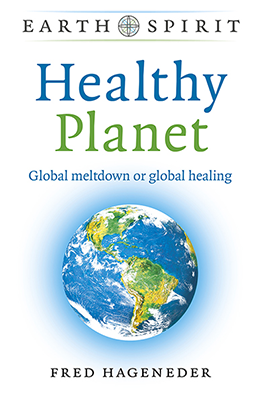Healthy Planet
Fred Hageneder’s Healthy Planet: Global Meltdown or Global Healing is a comprehensive account of the planetary crisis and its ecological dimensions. With topics ranging from Earth science and ecology, to climate change and a sustained critique of anthropocentrism, Hageneder covers considerable territory.
His theoretical ambit in the first two parts of the book is to establish a scientific grounding for the Gaia hypothesis, first advanced by James Lovelock in 1973, the idea that Earth is a self-regulating organism comprised of multiple systems of integrated ecological complexity, the health and sustainability of which depend on the functional integrity of all its living parts and ecological systems. Parts 1 and 2 of the book provide detailed but concise overviews of the scientific basis for understanding Gaia holistically. These sections of the book lean more on the technical side but the presentation is clear and accessible.
The third part, titled ‘The Human Interface — Ethics and Dignity in an Era of Barbarism’, addresses the implications and applications of the ideas established in the first two parts. While critiquing the problems of anthropocentrism, Hageneder advances an ecocentric worldview that displaces strictly human concerns, in favour of an Earth ethic that is seen as essential for the survival and sustainability of all life and the precondition for any kind of healthy planet.
Hageneder’s book could be viewed as a contribution toward an ecocentric anthropology; an understanding of human evolution as part and parcel of the evolutionary integrity of the planet. Solutions to the catastrophe of ‘climate change’, Hageneder suggests, will require a radical re-envisioning of the Earth and the human placement and adaptation within, rather than control over, it: a sensible prescription and recommended reading.
Book Details: Fred Hageneder. Earth Spirit — Healthy Planet: Global Meltdown or Global Healing. Moon Books (28 January 2022). ISBN: 978- 789048308
Review Details: Healthy Planet was reviewed by Christopher Greiner for Indie Shaman magazine and this review was published in Issue 53.

